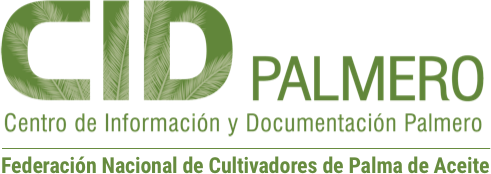| dc.creator | Caliman, Jean P. | |
| dc.creator | Carcasses, R. | |
| dc.creator | Perel, N. | |
| dc.creator | Wohlfahrt, J. | |
| dc.creator | Girardin, P. | |
| dc.creator | A. Wahyu Pujianto, | |
| dc.date | 2007-01-01 | |
| dc.date.accessioned | 2020-07-25T11:19:18Z | |
| dc.date.available | 2020-07-25T11:19:18Z | |
| dc.identifier | https://publicaciones.fedepalma.org/index.php/palmas/article/view/1280 | |
| dc.identifier.uri | http://repositorio.fedepalma.org/handle/123456789/139907 | |
| dc.description | The pressure by various organizations worldwide to conduct human productive activities in a sustainable manner has been increasing in the last few years. In the agricultural sector, the oil palm is in the crosshairs of some NGO's, as they consider that its growing development contributes to significant deforestation of the tropical rain forest, and often to social problems with regards to local populations. In response, national regulations have been reinforced, particularly in order to reduce the risk of pollution related to palm oil production. The RSPO (Roundtable on Sustainable Palm Oil) was then created with the main objective of adopting the best practices. In order to achieve the objective, a set of principles and criteria have been established. However, the tools required for the verification and evaluation of these principles and criteria have yet to be defined by the plantations. To this and, Cirad, in collaboration with its partners, notably PT. Smart-, has started to build a set of agri-environmental indicators, and the purpose of this article is to present their potential for the sustainable production of palm oil. | en-US |
| dc.description | La presión de diferentes organizaciones en el mundo para que el ser humano desarrolle sus actividades productivas de manera sostenible, ha aumentado en los últimos años. En el sector agrícola, la palma de aceite en particular está en la mira de algunas ONG, que consideran que su creciente desarrollo contribuye a la deforestación de bosques húmedos tropicales, y con frecuencia a problemas sociales en las poblaciones de su influencia. Como respuesta, se han reforzado las normas nacionales, particularmente para reducir el riesgo de contaminación asociado a la producción de aceite de palma, y se creó a nivel global la RSPO (Mesa Redonda sobre Aceite de Palma Sostenible), cuyo objetivo principal es la adopción de mejores prácticas. Para alcanzar tal objetivo, se establecieron ciertos principios y criterios a los que, sin embargo, todavía no se les han definido herramientas de verificación y evaluación por parte de las plantaciones. Para coadyuvar en tal fin, el Cirad, en colaboración con socios -particularmente PT. Smart-, comenzó a desarrollar una serie de indicadores agro-ambientales, y es el objetivo de este artículo presentar su potencial para la producción sostenible de aceite de palma. | es-ES |
| dc.format | application/pdf | |
| dc.language | spa | |
| dc.publisher | Fedepalma | es-ES |
| dc.relation | https://publicaciones.fedepalma.org/index.php/palmas/article/view/1280/1280 | |
| dc.rights | Derechos de autor 2017 Revista Palmas | es-ES |
| dc.rights | https://creativecommons.org/licenses/by-nc-nd/4.0 | es-ES |
| dc.source | Revista Palmas; Vol. 28 Núm. especial, (2007); 434-445 | es-ES |
| dc.source | 0121-2923 | |
| dc.subject | palma de aceite | es-ES |
| dc.subject | elaeis guineensis | es-ES |
| dc.subject | impacto ambiental | es-ES |
| dc.subject | análisis estadístico | es-ES |
| dc.subject | desarrollo sostenible | es-ES |
| dc.title | Agra-environmental indicators for sustainable palm oil production | en-US |
| dc.title | Indicadores agro-ambientales para la producción sostenible de aceite de palma | es-ES |
| dc.type | info:eu-repo/semantics/article | |
| dc.type | info:eu-repo/semantics/publishedVersion | |


